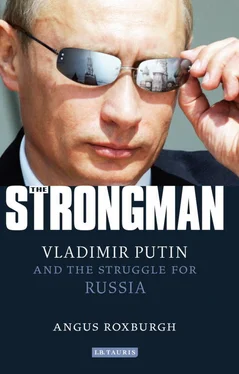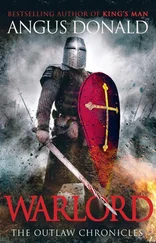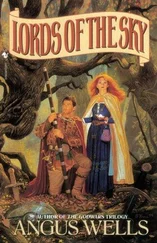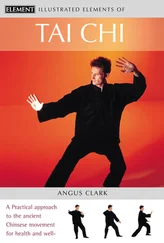Business, of sorts, spread everywhere – most visibly in the shape of tiny kiosks selling suspicious-looking alcohols and foodstuffs. Meat, unfit for human consumption, was sold at marketplaces that sprang up spontaneously on pieces of waste ground, which became breeding grounds for rats and disease.
Desperate people sank their savings into pyramid schemes that invariably collapsed, leaving them penniless. In 1992 the government issued privatisation vouchers to every citizen. The idea was that these could be exchanged for shares in enterprises being privatised. In practice millions of people just sold them or gave them away and they ended up largely in the hands of a few shrewd entrepreneurs or state enterprise managers who thereby became Russia’s new capitalist owners.
Industry collapsed. Workers were not paid, or were paid several months in arrears, and often with goods – towels or soap or tampons – rather than money. Enterprises themselves traded with each other by barter. A once proud country received shipments of food aid – sugar and margarine from the European Union’s surplus stocks and US army rations left over from the Gulf War. A superpower was now holding out a begging bowl.
Flying to Vancouver in April 1993 to ask President Clinton for help, Yeltsin pointed out: ‘Remember that East Germany needed $100 billion to get rid of the communist monster.’ He returned with the promise of just $1.6 billion, much of it in the form of credits and food aid. Some wondered whether the West lacked imagination. Did Russia not need a ‘Marshall Plan’ to rebuild its decrepit Soviet-era infrastructure, which was in little better shape than Germany’s after the Second World War?
Western consultancies probably profited more from Western aid packages than the Russians did. I remember interviewing the manager of a small Moscow bakery who had been on a month-long management course, paid for by Western governments, with some consultancy in England. ‘All I really needed,’ she told me, ‘was the money to buy some top-class bakery equipment. I know how to manage my company!’
Russian society was truly battered by the abrupt transition from communism. People had literally lost their own country: the Soviet Union, a land of 250 million people in 15 national republics, splintered. Twenty-five million Russians suddenly found themselves residents of foreign countries, stranded in what became known as the ‘near abroad’. Inhabitants of Siberia could no longer escape to holiday in the Crimea (now in Ukraine) or even in Moscow, because air fares were beyond their reach. I was astonished, on a trip to Siberia, to hear people calling European Russia the ‘mainland’, as though they were marooned on a remote island in the middle of an ocean.
There was little sign that the Kremlin’s Western advisers understood how to handle this dislocated society. Western governments didn’t seem to notice the chaos and squalor – or they didn’t care, so obsessed were they with the vision of building capitalism, regardless of its immediate impact. Western corporations only saw a massive new marketplace for their goods. A strange Russian phrase, Produkt kompanii Prokter end Gembl (produced by Proctor and Gamble), boomed out at the end of every other TV ad like some new political slogan. I think Russians must have been driven mad by those words. They seemed to replace ‘Long live the Communist Party’ seamlessly, but instead of promising a radiant future they promised Head & Shoulders and Pampers, which few Russians could yet afford.
American consultants in sharp suits swarmed around, cooing over Nizhny Novgorod’s privatisation projects and its pioneering young reformers. The city on the Volga, previously known as Gorky, was the first to sell off major chunks of the state’s assets to ordinary people. In many ways it really was inspiring. I remember watching go-ahead Russians, keen to set up their own private businesses, inspecting 195 state-owned trucks and vans, many of them in a dreadful condition, and then bidding for them at an auction. The problem for me, and I suspect for many Russians, was the sight of so many foreigners supervising the process. To all intents and purposes it looked as if America was selling off Russia.
For those who took the leap – ‘collectives’ of shop-workers who got together to buy and run their own stores, for example – it really worked. As proprietors, desperate to attract customers, they set about transforming their businesses with a zeal that soon swept away the drab Soviet shopping experience. But for those on the other side of the counter, whose savings and pensions were obliterated by hyper-inflation, it was a very different story. Life-expectancy plummeted, alcoholism rose and thousands of quack doctors, psychics and ‘white witches’ stepped in to take advantage of the general mood of desolation.
And then there was the Chechen war. Yeltsin had encouraged Russia’s regions to assert their own powers, but Chechnya, a small Muslim republic in the northern Caucasus, went so far as to declare itself independent. To accept this might have created a precedent which could lead to the break-up of the Russian Federation, so in December 1994 Yeltsin ordered an invasion of the republic. It was an all-round disaster. Thousands of poorly trained Russian troops died, and hundreds of thousands of Chechens were either killed or displaced to neighbouring republics. The capital, Grozny, was reduced to rubble. The Chechens became radicalised and embittered, rekindled their Islamic faith, which had been dormant in the Soviet period, and thousands of men joined the separatist militias – who eventually forced the Russian army out of their country. It was an ignominious defeat, which led to Chechnya’s de facto independence by the end of 1996. The rebels also took to staging terrorist attacks inside Russia itself: in the summer of 1995 they seized more than a thousand hostages in a hospital in the southern town of Budyonnovsk. The authorities tried to storm the hospital (leading to the deaths of at least 130 people) but then allowed the hostage-takers to escape.
By early 1996 Boris Yeltsin’s popularity had slumped to a barely measurable level. Not only were his reforms unpopular and the war in Chechnya a disaster, but the president himself had become an embarrassment on account of his frequent drunken appearances. There is little doubt that the communist leader Gennady Zyuganov could have been elected president in that summer’s election if it had been fair. Instead, the country’s new oligarchs – billionaire businessmen who feared losing their new-found wealth if the communists came back – banded together to ensure a Yeltsin miracle. These were men who in a ‘loans for shares’ scheme initiated in 1995 acquired Russia’s largest state industries, including most of its oil and gas reserves, for a fraction of their worth, in exchange for bailing out the penniless government. Now they bankrolled Yeltsin’s campaign and used the national television stations they owned to skew election coverage entirely in his favour. Yeltsin swept back to power – and the West sighed with relief. For Clinton and other Western leaders, ‘democracy’ and the ‘free market’ had been saved in Russia. And that was all that mattered.
What most Western leaders failed to appreciate was the psychological trauma that Russians, as individuals and as a nation, were going through. Vladimir Putin was far more in tune with it.
As the American scholar Stephen F. Cohen wrote, the received wisdom in the US was that ‘since the end of the Soviet Union in 1991, Russia has been a nation ready, willing, and able to be transformed into some replica of America’. 4Leave aside the immense cultural and historical differences that make Russia unlikely ever to become a ‘replica’ of America. The fact is that Russians were thrown in at the deep end, with no time even to adjust to freedom.
Читать дальше










![Brian Thompson - A Monkey Among Crocodiles - The Life, Loves and Lawsuits of Mrs Georgina Weldon – a disastrous Victorian [Text only]](/books/704922/brian-thompson-a-monkey-among-crocodiles-the-life-thumb.webp)

